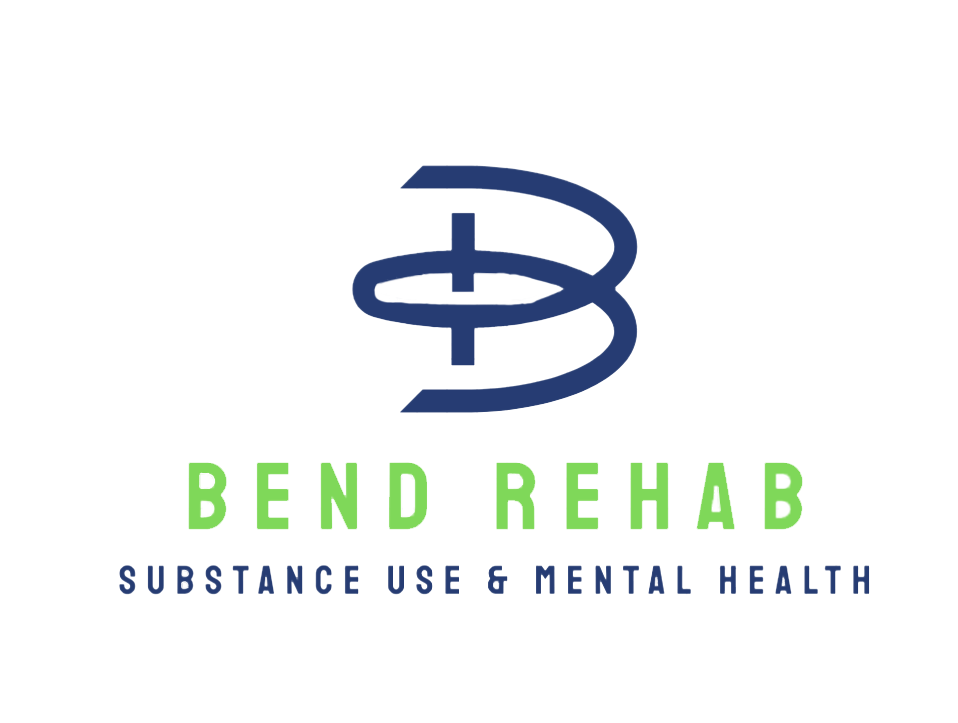Rehabs in Bend OR
Addiction touches the lives of millions of people across the nation, creating waves of hardship for individuals and their loved ones alike. For many, seeking help can feel like an insurmountable challenge, but it’s also the first step towards regaining control and finding hope. With the opioid epidemic and other substance misuse disorders on the rise, the need for effective and compassionate rehabs in Bend OR has never been more critical. Nestled in the tranquil beauty of Oregon’s high desert, Bend has become a beacon of hope for those seeking recovery. In this blog, we’ll explore the road to recovery through rehabs in Bend OR—diving into the processes, programs, and support systems that make this scenic town an ideal place for healing.
Understanding Addiction
Before navigating recovery, it’s important to understand the science of addiction. Addiction isn’t simply a series of bad choices—it’s a chronic disease that alters brain chemistry, driving compulsive drug use or destructive behaviors even when those choices lead to negative consequences. Whether it’s opioids, alcohol, or other substances, addiction can affect anyone, regardless of their background or socioeconomic status. This unpredictability highlights the necessity of accessible, evidence-based treatments in trusted recovery settings.
How Addiction Affects the Individual and Community:
- Psychological and Physical Toll: Addiction rewires the brain’s reward system, causing intense cravings and a growing dependency on the substance or behavior. Over time, this can lead to significant emotional struggles, such as anxiety or depression, as well as physical health issues, including fatigue, weakened immunity, and other long-term complications.
- Impact on Loved Ones: Families often face significant challenges when dealing with a loved one’s addiction, including financial strain from covering treatment costs or debts, emotional distress from watching someone they care about struggle, and fractured relationships due to trust issues or unresolved conflicts. These struggles can create a ripple effect, impacting the well-being of everyone involved.
- Social Ripple Effect: Communities are deeply affected by addiction, experiencing challenges such as overburdened health systems, reduced workplace productivity, increased crime rates, and widespread mental health concerns. These impacts extend beyond individuals, influencing families, neighborhoods, and society as a whole.
Understanding addiction as a treatable condition is the first step to combating its stigma and encouraging those who are struggling to seek the help they need. Addiction is often misunderstood, leading to judgment or shame, which can prevent individuals from reaching out for support. By recognizing it as a medical condition that can be managed with the right interventions, we can foster compassion and create a more supportive environment for recovery.
The Importance of Seeking Help
Recognizing the need for professional intervention is often the hardest, but most important, part of the recovery journey. Addiction can be incredibly isolating, leaving individuals feeling trapped by guilt, shame, or fear when thinking about seeking help. Many hesitate to reach out, worried about judgment or the challenges of confronting their struggles. However, taking that first step toward treatment is an act of immense courage and a powerful step toward healing. For families and loved ones, this process can also be challenging, but offering consistent support, patience, and understanding can make all the difference. A simple gesture of encouragement or an open, nonjudgmental conversation may be what someone needs to feel ready to seek the help they deserve. Recovery is not easy, but no one has to face it alone.
Why Rehabs in Bend OR Matters:
- Provides a well-structured and supportive environment designed to help individuals stay organized, motivated, and focused on achieving their goals.
- Offers evidence-based treatment plans that are carefully tailored to meet each individual’s unique needs, ensuring personalized and effective care.
- Establishes a strong foundation for long-term recovery by providing essential tools, resources, and support systems, while also focusing on effective strategies for relapse prevention.
Rehabs in Bend OR, combine compassionate care with serene surroundings, offering a unique approach to recovery. Nestled in the beauty of Central Oregon, these facilities provide individuals with a peaceful environment that promotes healing and personal growth. With access to a variety of therapeutic programs and outdoor activities, individuals can focus on their recovery journey while reconnecting with nature.
Choosing the Right Rehabs in Bend OR
Bend’s rehabilitation centers are widely recognized for their integrated and patient-focused care, offering comprehensive programs tailored to meet the unique needs of individuals at every stage of their recovery journey. These facilities emphasize a holistic approach, addressing physical, emotional, and psychological well-being to ensure lasting results. When choosing a rehabilitation center in Bend, it’s crucial to prioritize several key factors, including the quality and variety of treatment programs, the expertise and qualifications of the staff, the center’s accreditation status, and its track record of long-term success rates. Additionally, considering factors like personalized care plans, access to support groups, and any specialized services offered can help ensure you or your loved one receives the best possible support. Here’s a closer look at these important considerations:
1. Treatment Programs Offered
Every addiction story is unique, and successful recovery programs acknowledge this by offering tailored treatments. Rehabs in Bend OR typically provide:
- Detoxification to manage withdrawal symptoms safely and comfortably, providing medical support to help cleanse the body and prepare for the recovery process.
- Individual and Group Therapy to help address emotional and psychological factors, providing personalized support in one-on-one sessions or a shared space for connection and healing with others facing similar challenges.
- Medication-Assisted Treatment (MAT) combines FDA-approved medications with counseling and behavioral therapies to support long-term recovery maintenance and improve outcomes for individuals struggling with substance use disorders.
- Holistic Therapies, including yoga for physical and mental balance, mindfulness to enhance self-awareness and reduce stress, art therapy to encourage creative expression, and outdoor activities to connect with nature and promote overall well-being.
- Family Therapy, a vital step in healing and rebuilding relationships damaged by addiction, focuses on improving communication, fostering understanding, and creating a supportive environment for recovery.
2. Accreditation Matters
Ensure the center has accreditation by reputable organizations such as the Commission on Accreditation of Rehabilitation Facilities (CARF) or The Joint Commission (JCAHO). These certifications signify that the facility has undergone thorough evaluations to meet stringent standards in areas like safety protocols, staff qualifications, treatment effectiveness, and the overall quality of care provided. Choosing an accredited center gives you confidence that the facility adheres to best practices and upholds a high level of professionalism, ensuring the best possible outcomes for those seeking help.
3. Qualified, Compassionate Staff
Successful treatment relies on a team of licensed and experienced professionals working together to provide comprehensive care. This team typically includes psychiatrists, who can diagnose and manage mental health conditions, therapists who guide you through the emotional and behavioral aspects of recovery, nurses who monitor your physical health, and case managers who help coordinate your treatment plan and connect you to essential resources. These professionals specialize in addiction treatment, bringing not only their technical expertise but also a deep understanding of the challenges you face. Beyond their skills, your care team should offer genuine compassion, encouragement, and hope, creating a supportive environment where recovery feels achievable.
4. Success Rates and Testimonials
While recovery is deeply personal and unique to each individual, taking the time to research success rates and read testimonials from former clients can offer valuable insights into the effectiveness of a program. These testimonials often highlight personal stories of triumph, resilience, and growth, which can help you understand the kind of support and results you might expect. Positive experiences not only inspire confidence in the program but also provide hope and motivation for those embarking on their own recovery journey.
5. Aftercare Support
The road to recovery is a journey that goes well beyond the completion of formal inpatient treatment. Rehabs in Bend OR understand the importance of continued support, which is why they emphasize comprehensive aftercare programs. These programs are tailored to help individuals transition back to everyday life while maintaining their progress and can include:
- Ongoing therapy to provide continuous support and help individuals work through challenges over time.
- Alumni support groups and networks that provide mentorship, professional connections, and opportunities for personal and career growth.
- Practical resources and strategies to help maintain sobriety during life’s challenging transitions, providing guidance and support for those navigating change.

The Journey Through Recovery
Rehabilitation is a deeply personal and transformative process, requiring mental, emotional, and physical perseverance to overcome challenges and rebuild strength. It involves a journey of self-discovery, resilience, and determination, as individuals work to regain their independence and improve their quality of life. While no two paths to recovery are the same, most individuals encounter common stages along the way, including moments of progress, setbacks, and eventual breakthroughs that shape their overall experience.
1. Acknowledgment and Acceptance
Healing begins with the acknowledgment of addiction, a crucial first step on the path to recovery. Admitting the need for help, while daunting and often accompanied by fear or shame, is also the catalyst for change. It’s the moment where courage meets vulnerability, opening the door to support, understanding, and the possibility of a healthier, better future. Recognizing the problem is not a sign of weakness but a powerful act of self-awareness and strength.
2. Detoxification
The first step in most cases of addiction recovery is detox, a process that allows the body to eliminate harmful substances while adjusting to their absence. Supervised detox is crucial as it minimizes discomfort, manages withdrawal symptoms, and ensures safety throughout the process. With medical professionals providing support and monitoring, individuals are better equipped to begin their recovery journey on a stable and healthier foundation.
3. Therapy and Counseling
Therapeutic modalities are the heart of rehabilitation:
- Individual Therapy provides a safe and confidential space for patients to work one-on-one with a trained therapist. It helps them explore the root causes of addiction, uncover underlying issues such as trauma or mental health challenges, and develop healthy coping mechanisms. Through personalized sessions, patients can gain deeper self-awareness and build the tools needed for long-term recovery.
- Group Therapy fosters understanding, empathy, and connection by bringing together individuals on similar journeys to recovery. It provides a supportive space to share experiences, learn from others, and build a sense of community that promotes healing and personal growth.
4. Relapse Prevention
Through therapy and personalized planning, individuals gain the tools they need to navigate the challenges of recovery. They learn to identify personal triggers that may lead to substance use, understand the risks and warning signs of relapse, and develop effective strategies to maintain long-term sobriety. This process often includes building healthier coping mechanisms, improving self-awareness, and creating a strong support network to sustain their progress over time.
5. Continued Support
Sobriety is a lifelong commitment that requires dedication and effort every step of the way. Building and maintaining strong support systems is crucial for long-term success. These can include outpatient counseling sessions with trained professionals, peer support groups like Alcoholics Anonymous that offer shared experiences and accountability, or participation in community activities that foster a sense of belonging and purpose. Each of these resources plays a vital role in helping individuals navigate challenges, stay focused on their goals, and create a fulfilling, sober life.
Why Bend, OR, is an Ideal Destination for Recovery
Bend’s striking natural landscapes provide the perfect backdrop for healing and personal growth. Surrounded by majestic mountains, serene rivers, and sprawling forests, Bend offers an environment that promotes peace and self-reflection. Its quiet, calming surroundings allow individuals the space to connect with themselves, focus on their goals, and embrace a sense of clarity often hard to find in bustling urban settings. Outdoor activities such as hiking, kayaking, and cycling not only provide stress relief but also contribute to physical and mental well-being. For many, being in Bend enhances the recovery experience by blending world-class care with the unique tranquility and restorative power of nature, creating an ideal setting for lasting transformation.
Conclusion
Recovering from addiction is not a one-size-fits-all process—but it is absolutely possible with the right support. The rehabilitation centers in Bend, OR, are known for their comprehensive approach to treatment, offering not only expert care but also a serene and supportive environment that fosters restoration and personal growth. These facilities provide tailored, evidence-based programs designed to meet the unique needs of every individual, ensuring the best chance for success. Whether it’s through counseling, group therapy, or holistic treatments like mindfulness and wellness activities, rehabs in Bend OR focus on healing the whole person—mind, body, and spirit. If you or someone you love is struggling with addiction, know that you are not alone, and help is closer than you think. Please contact us today by calling 1 (541) 802-7214 or clicking Bend Rehab to start your journey to sobriety. Whether you’re seeking help for yourself or advocating for a loved one, the journey to recovery begins with courage and the willingness to reach out. Together, we can overcome addiction, dismantle the stigma surrounding it, and build a future filled with hope, healing, and possibility. A brighter tomorrow is within reach—start your journey today.




